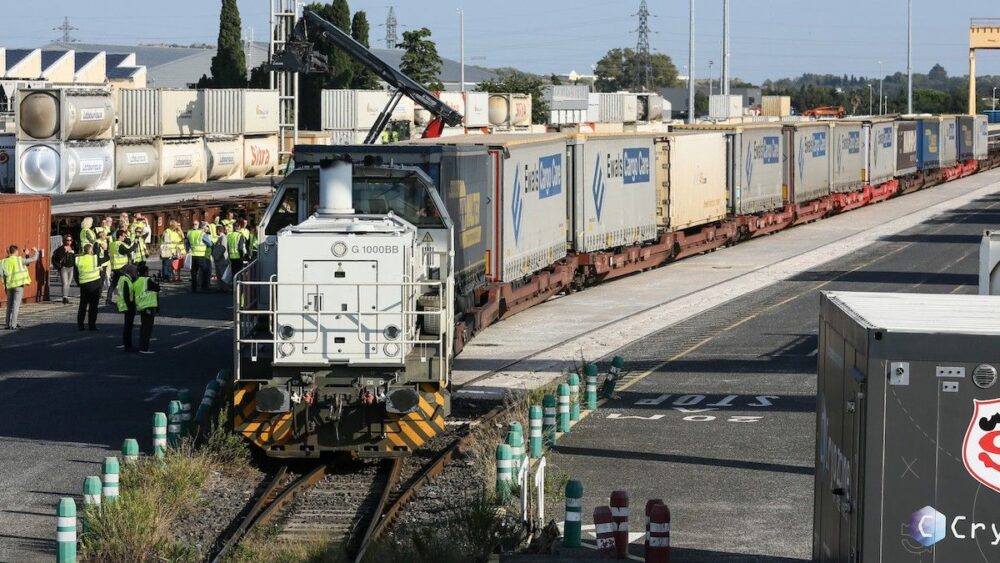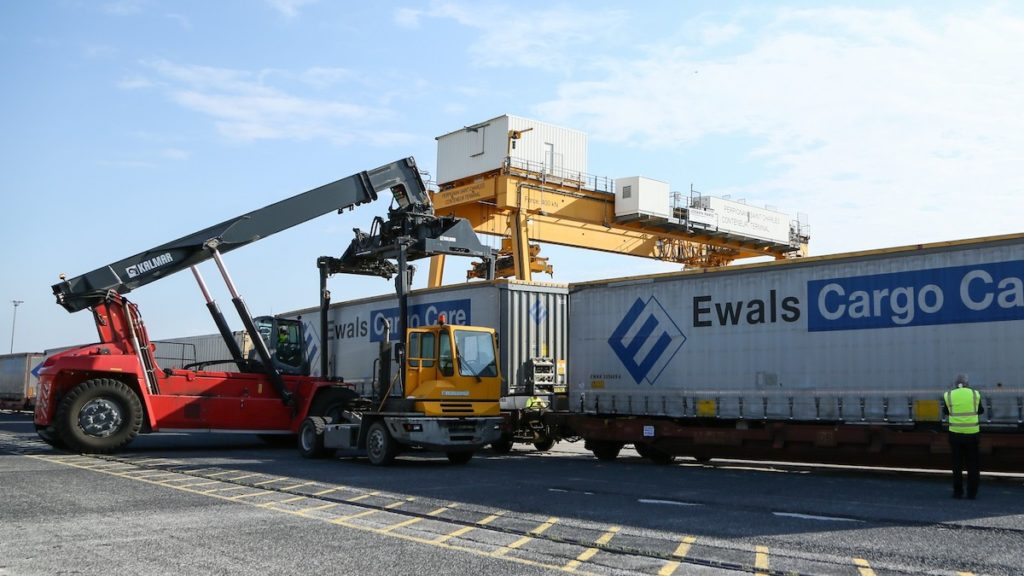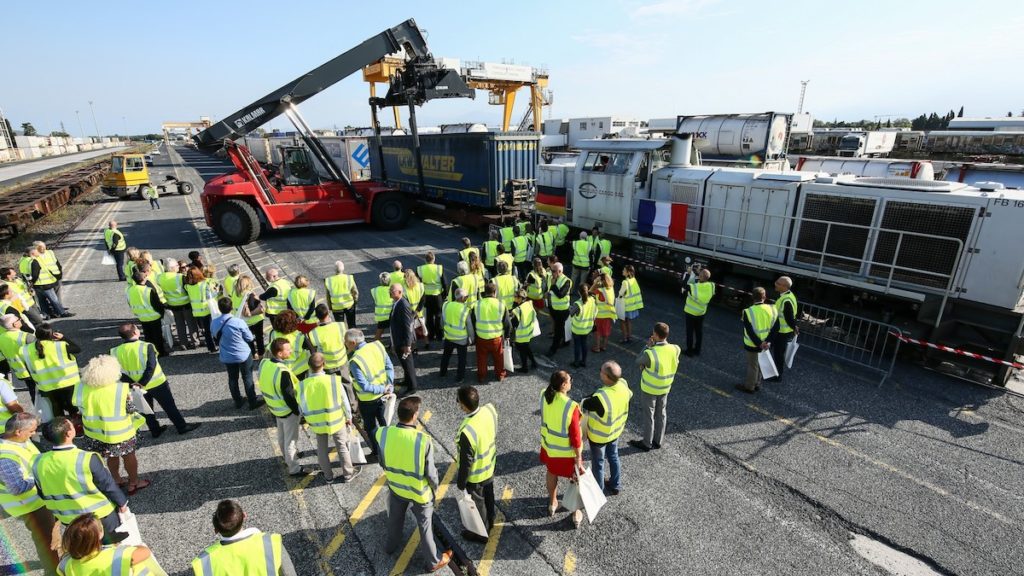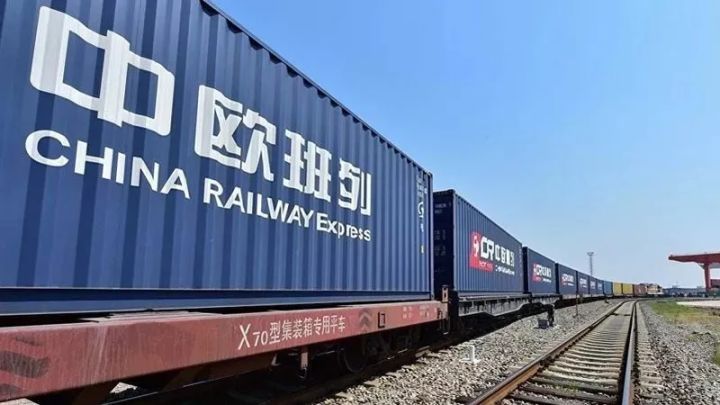 TRAILS is a territorial cooperation project that aims to increase the number of rail cargo links between Catalonia and the French region of Occitania. (Photo by TRAILS)
TRAILS is a territorial cooperation project that aims to increase the number of rail cargo links between Catalonia and the French region of Occitania. (Photo by TRAILS)
Project TRAILS, an example of cross-border cooperation
TRAILS is a territorial cooperation project that aims to increase the number of rail cargo links between Catalonia and the French region of Occitania. Its main goal is to foster sustainable development in the cross-border region and bolster the area’s social and economic integration.

Simó Batlle is Planning and Intermodality Director of CIMALSA.
 TRAILS is a territorial cooperation project that aims to increase the number of rail cargo links between Catalonia and the French region of Occitania. (Photo by TRAILS)
TRAILS is a territorial cooperation project that aims to increase the number of rail cargo links between Catalonia and the French region of Occitania. (Photo by TRAILS)
With a €1.35M budget and a three-year duration, TRAILS (Transnational Intermodal Links toward Sustainability) aims to increase both the number of rail freight links between Catalonia and Occitania and the overall railway quota in the Mediterranean Corridor.
The project is spearheaded by CIMALSA, promoted by the CSM (Multimodal Freight Services of Catalonia), and will be funded by the European programme POCTEFA 2014-2020. POCTEFA is a European programme financed by the European Regional Development Fund (ERDF), and its main goal is to foster sustainable development in the cross-border region of Spain, Andorra and France; and to bolster the area’s social and economic integration. The project’s partners include important players in the field of transport and logistics from both Catalonia and Occitania.
TRAILS aims to offer efficient solutions to the large multimodal and railway quota deficits of freight at the French-Spanish border from La Jonquera (Mediterranean Corridor). In fact, despite being innaugurated in 2010, the new UIC gauge connection via the Perthus Tunnel hasn’t resulted in an increase in trans-Pyrenees railway traffic as had been expected. This is especially true with regards to cargo traffic.
To meet both demands (increase the supply of cross-border services and reduce emmissions), TRAILS is designed to be a unique permanent cross-border window for finding multimodal solutions to the logistical needs of the Catalan economy and that of the Eastern Pyrenees upholding a cooperation-based strategy between operators, shippers and transport companies on both sides of the border.

The ultimate goal of the project is to facilitate the identification of new transnational railway routes to improve both the supply and the number of links and to provide efficient support to the consolidation of cargo transport for multiclient and multiproduct services in both territories.
In parallel, the project will also strive to achieve a greater railway infrastructure interoperability, and endeavour to reconcile the planning strategies of logistical infrastructures and support services for the multimodality of Catalonia and Occitania.
The starting point of TRAILS coincides with the conclusion of another project with European subsidies, namely iFreightMED-DC, which was part of the MED transnational cooperation programme, funded by the European Union, which pointed out the need for a cross-border connection and which led to the creation of the aforementioned CSM. These needs, expressed in the “Manifesto for improving the competitiveness of multimodal services in the Mediterranean Corridor” are precisely the ones TRAILS seeks to correct.
With IfreightMED and TRAILS, the CSM has carried out a public and competitive process to provide direct support to pilot multimodal freight service projects. 10 proposals have been put forward by consortia made up of transport operators and freight companies, of which two have been selected:
- The consortium headed by the Intermodal Terminal of Monzón to implement a sustainable alternative to the regular transport of polyethylene terephthalate (PET) from the Novapet plant in Barbastro to the French area of Amphion, which borders with Switzerland. This transport will now be performed by Iberian gauge from Monzón to the port of Barcelona and by international gauge (UIC) between the port of Barcelona and its French destination.
- The consortium made of up Setram, Multirail, Tomàs Expedicions and Ferrocarriles de la Generalitat de Cataluña (FGC), to improve the compatibility of the transport of finished vehicles with the transport of other goods, in order to create trains that combine both the transport of vehicles and containers using VucaFrame, a container structure for transporting up to six cars on two levels at once. This type of rail car was intended to consolidate the rail service between Barcelona and Cordoba.
TRAIL’s first results are:
- Cooperation in the development of the new DB Trailer Med Xpress service, a mixed train that transports P400 semi-trailers, swap bodies and containers between Perpignan and Saarbrücken since July 2018.
- The creation of the first Observatory of rail freight costs, with both French and Spanish data.
- The cooperation of the team of the Mediterranean Corridor Technical Office and the government of Occitania for the development of a joint GIS.
- A technical survey of materials for the development of the adiabatic container.
- The digital design of the control document and the CIM bill of lading.
- Cooperation with FERRMED in the study of traffic and modal shift optimisation. Main corridors of the UE Core Network.

The help TRAILS will provide to five private companies for the development of their respective rail services or for their consolidation and increase of offered services is still pending resolution and publication.
It will be a similar help to the one offered by CSM described above, only in this case it comes as a result of the coordination between Catalonia and Occitania and, therefore, implies transnational rail services.
The companies that have opted for this support are rail operators, railway companies and terminal operators.
From the start, aside from CIMALSA, the project has also counted with the cooperation of the Catalan government, FGC, the Catalan Council of Chambers, the region of Occitania, the multimodal platform MP², currently Occitanie Cluster Logistique, Pyrennées Méditerranée Invest, Saint Charles International, Eurosud Team and the FNTR of the Eastern Pyrenees. The project has also recently welcomed the Railgrup cluster, the Acció agency, the Port of Barcelona, PSCTT, who operate the rail/road combined transport terminal, and the Regional Chamber of Commerce and Industry of Occitania.






